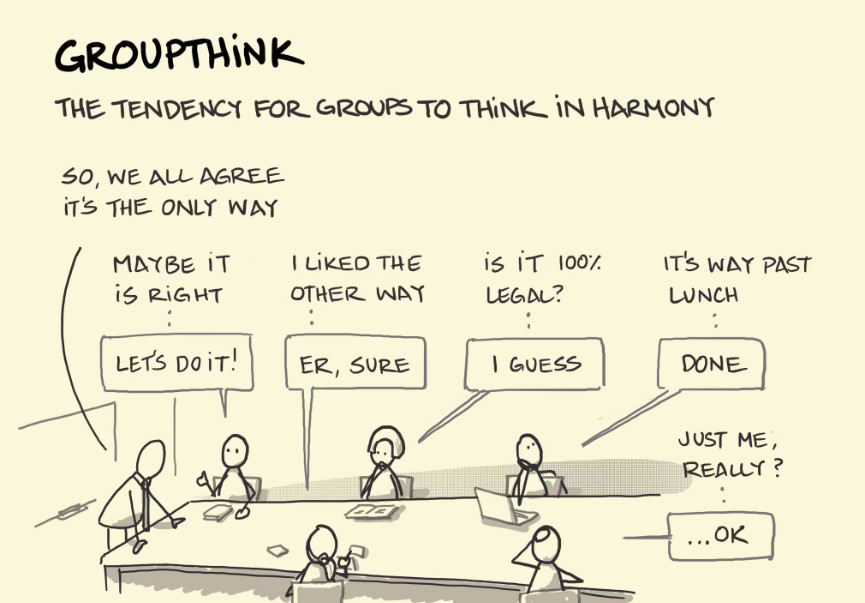Groupthink is a cognitive bias that occurs when a group of individuals prioritizes consensus and harmony over critical thinking and individual expression of opinions. In a groupthink scenario, group members tend to conform to the majority’s viewpoint or decisions, even if these choices are flawed, irrational, or misguided.
Explanations:
Groupthink often arises from a desire for cohesion and the avoidance of conflict within a group. Members may fear social rejection or isolation, which can lead them to suppress dissenting opinions and conform to the prevailing group attitude.
Examples:
Corporate Decision-Making: In a corporate boardroom, group members might suppress concerns about a risky business decision to avoid rocking the boat, even when evidence suggests it’s a poor choice.
Political Decision-Making: In a political cabinet, ministers may conform to the leader’s policies and refrain from voicing alternative viewpoints, even if they have reservations about certain policies.
Social Dynamics: In a social group, individuals might agree with a group decision or belief to fit in, even if they have doubts or disagree in private.
Solutions:
Promote Diverse Perspectives: Encourage open and inclusive discussions where all members are free to express their views without fear of judgment or retribution.
Appoint a Devil’s Advocate: Designate a member to challenge the prevailing viewpoint and raise questions about the group’s decisions. This can help prevent groupthink.
Decision-Making Processes: Implement decision-making processes that require thorough examination of alternatives and evidence-based reasoning.
Group Reflection: Periodically evaluate the group’s dynamics and decision-making processes to identify signs of groupthink and address them proactively.
Addressing groupthink requires a commitment to fostering a culture of open and critical thinking within groups. Encouraging diverse perspectives and avoiding the pressure to conform can lead to more rational and informed decision-making.
